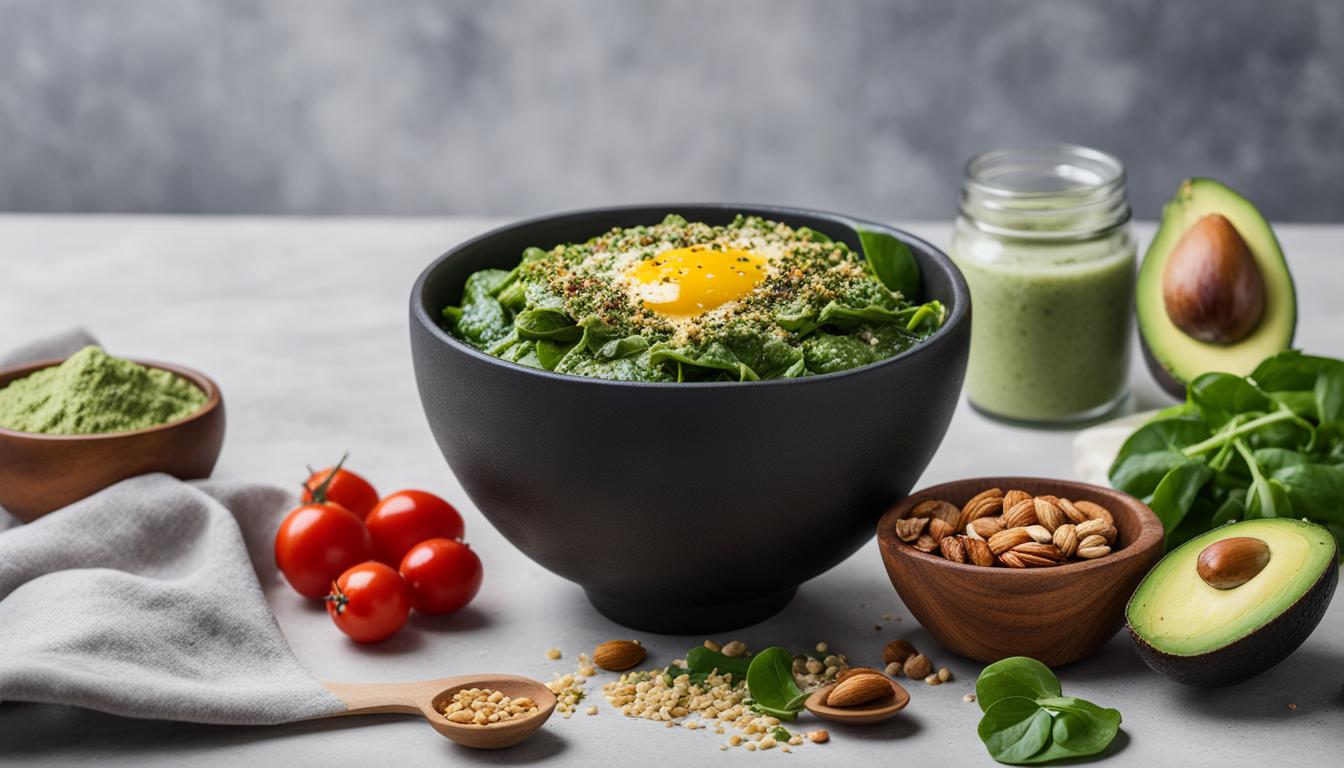Can You Have Milk on Keto Diet? Exploring the Impact of Dairy Consumption on Ketosis and Weight Loss
Can You Have Milk on Keto Diet? Exploring the Impact of Dairy Consumption on Ketosis and Weight Loss
Welcome to our exciting keto-diet journey, where we explore the impact of dairy consumption on ketosis and weight loss. Let’s start with the basics of the ketogenic diet and its emphasis on low-carb, high-fat foods.
The ketogenic diet, or keto diet for short, is a high-fat, low-carbohydrate eating plan that has gained immense popularity for its potential health benefits. The main principle of the keto diet involves drastically reducing carbohydrate intake and replacing it with fat. This reduction in carbs puts your body in a metabolic state called ketosis, where it becomes incredibly efficient at burning fat for energy.
With a focus on low-carb, high-fat foods, the keto diet encourages the consumption of healthy fats such as avocados, nuts, seeds, and oils, as well as moderate amounts of protein. However, one common source of debate within the keto community is the role of dairy, particularly milk, in the diet.
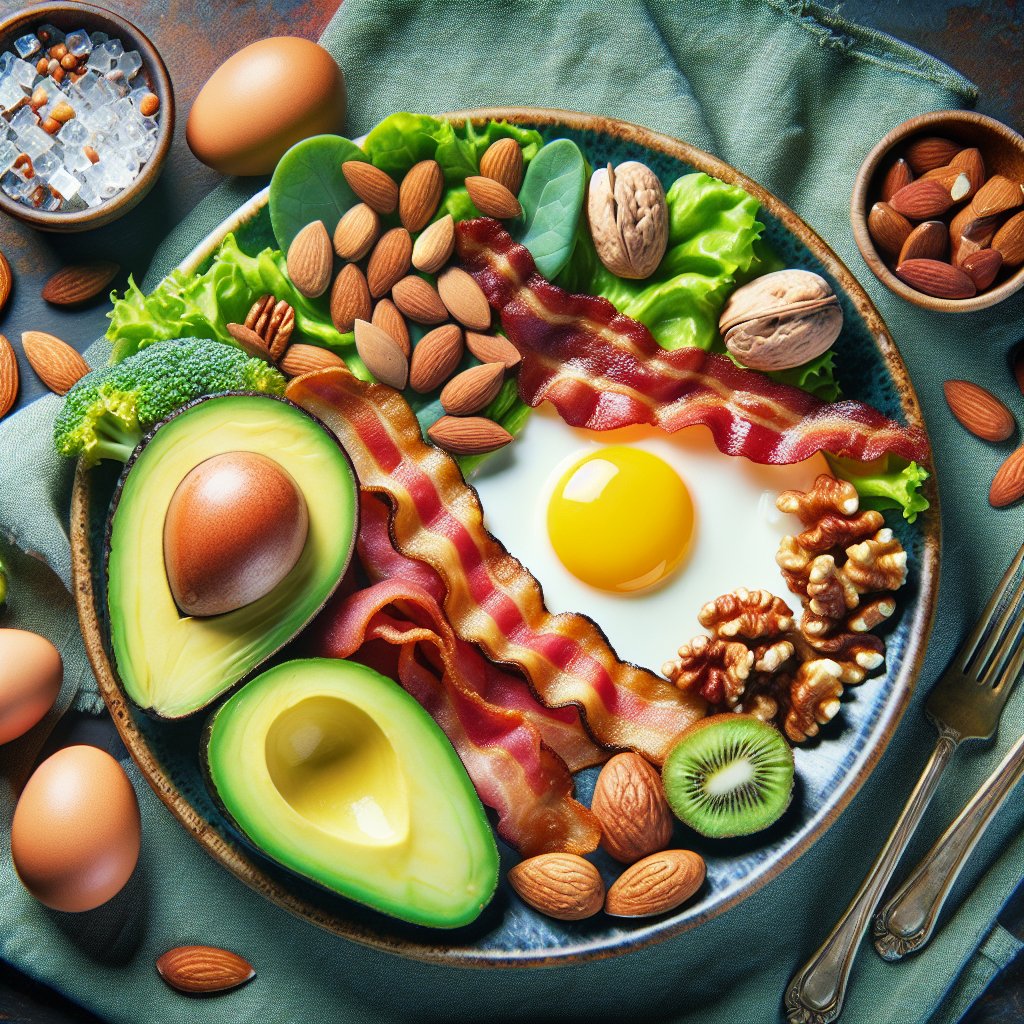
Can You Have Milk on Keto Diet?
One of the most common questions that arises when following a ketogenic diet is whether milk can be included. Many individuals are quite fond of milk and are hesitant to eliminate it from their daily routines. Let’s explore the impact of milk on ketosis and whether it can be integrated into a keto diet without hindering weight loss progress.
When it comes to the ketogenic diet, the primary goal is to achieve and maintain a state of ketosis. This metabolic state is characterized by the body utilizing fat as its primary fuel source instead of carbohydrates. Therefore, the diet emphasizes consuming high amounts of healthy fats, moderate protein, and minimal carbohydrates. Given this framework, it’s crucial to assess the compatibility of milk with the keto lifestyle.
While milk is a nutritious beverage that provides essential nutrients such as calcium, vitamin D, and protein, it does contain lactose, a natural sugar. Consuming milk can lead to an increase in blood sugar levels, potentially disrupting ketosis. Additionally, the carbohydrate content in milk needs to be considered, as it can impact the body’s ability to remain in ketosis.
Research suggests that the consumption of milk may vary in its effect on ketosis from person to person. Some individuals may be able to include small amounts of milk in their ketogenic diet without being kicked out of ketosis, especially if it fits within their daily carbohydrate limit. However, it’s essential to monitor your body’s response and ketone levels to determine whether milk consumption is compatible with your specific keto journey.
Choosing the Right Milk for Keto
For those who are keen on incorporating milk into their keto diet, it’s vital to select options that align with the low-carb, high-fat principles of the ketogenic diet. Unsweetened almond milk, coconut milk, or macadamia nut milk can be excellent substitutes for traditional cow’s milk. These alternatives are lower in carbohydrates and can be seamlessly integrated into keto-friendly recipes and beverages.
Nutritional Profile of Milk
One of the most common questions among individuals following the ketogenic diet is, “Can you have milk on a keto diet?” The impact of dairy consumption on ketosis and weight loss is a topic of considerable interest. To answer this question, it’s essential to delve into the nutritional content of different types of milk and understand how they fit into the ketogenic lifestyle.
Carbohydrate Content
Carbohydrates are a crucial consideration for those on the keto diet, as the primary goal is to minimize carb intake to achieve ketosis. Whole milk contains about 12 grams of carbohydrates per one-cup serving, of which 12 grams are naturally occurring sugars from lactose. On the other hand, unsweetened almond milk contains only 1-2 grams of carbohydrates per one-cup serving, while unsweetened coconut milk has approximately 0-1 gram of carbohydrates per one-cup serving. For individuals aiming to stay within their daily carb limit, opting for these lower-carb milk alternatives could be more compatible with the ketogenic diet.
Protein Content
Protein is an essential macronutrient for overall health, but excessive protein consumption can potentially hinder ketosis by being converted into glucose through a process called gluconeogenesis. Whole milk contains around 8 grams of protein per one-cup serving, while almond milk provides roughly 1 gram of protein per one-cup serving. Coconut milk contains approximately 0.5 grams of protein per one-cup serving. Considering the moderate protein content in whole milk, it can still be incorporated into the keto diet, but it’s important to be mindful of overall protein intake from other sources.
Fat Content
When it comes to the ketogenic diet, fat is a central component of the macronutrient profile. Whole milk is higher in fat, offering approximately 8 grams of fat per one-cup serving. On the other hand, almond milk provides 2.5-3 grams of fat per one-cup serving, and coconut milk contains approximately 4.5-5 grams of fat per one-cup serving. The higher fat content in whole milk aligns well with the principles of the ketogenic diet, making it a suitable option for those following the high-fat, low-carb approach.
Understanding the carbohydrate, protein, and fat content of different types of milk is essential for individuals considering their dairy consumption while on the keto diet. By being mindful of the nutritional profiles, it’s possible to make informed choices that align with the principles of the ketogenic lifestyle.
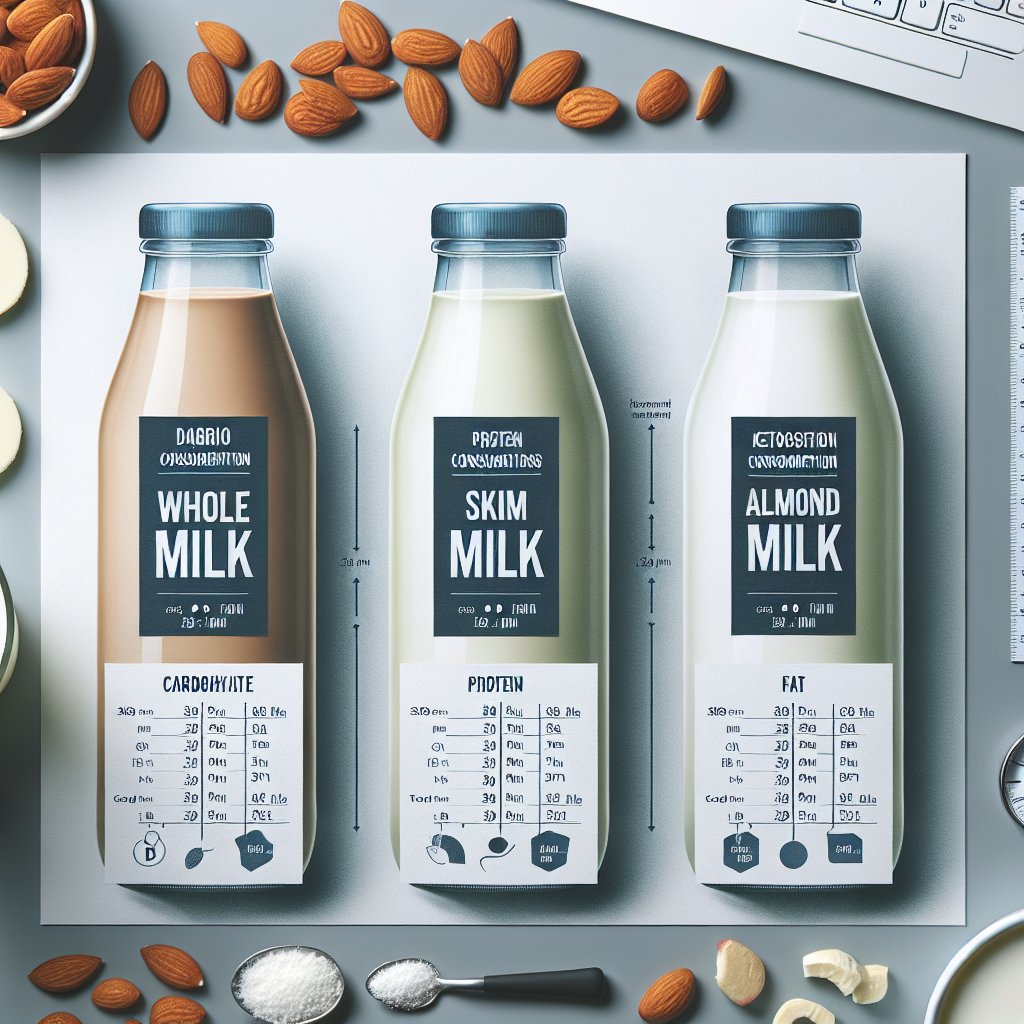
Carbohydrate Content in Milk
One of the key factors to consider when incorporating milk into your keto diet is its carbohydrate content. Let’s explore the carb content in different types of milk and how they can fit into your ketogenic lifestyle.
Whole Milk
Whole milk is rich and creamy, but it’s also higher in carbs compared to other types of milk. A one-cup serving of whole milk contains around 12 grams of carbohydrates. While it does provide essential nutrients like calcium and vitamins, it might not be the best choice for those following a strict keto diet due to its higher carb content.
Skim Milk
Skim milk, also known as fat-free milk, is lower in fat than whole milk but still contains lactose, a natural sugar found in milk. A one-cup serving of skim milk has approximately 12-13 grams of carbohydrates. For some individuals, this carb content may still be too high for staying in ketosis, especially when considering the limited daily carb allowance on the keto diet.
Almond Milk
Almond milk, a popular dairy alternative, is a keto-friendly option for those looking to reduce their carbohydrate intake. Unsweetened almond milk contains as little as 1-2 grams of carbohydrates per cup, making it a suitable choice for keto dieters. Additionally, almond milk is often fortified with calcium and vitamins, offering similar nutritional benefits to regular milk without the high carb content.
When considering the carb content in milk, it’s essential to select options that align with your macro goals on the keto diet.
Can You Have Milk on Keto Diet? Exploring the Impact of Dairy Consumption on Ketosis and Weight Loss
Ketosis and Dairy Consumption
Hey there, keto enthusiasts! If you’re like me, you might have wondered about the role of dairy in the ketogenic diet. Let’s clarify the relationship between dairy consumption, ketosis, and weight loss.
First off, it’s essential to understand that the keto diet aims to induce a state of ketosis, where the body uses fat for fuel instead of carbohydrates. This metabolic state is key to the diet’s success in promoting weight loss and overall well-being.
When it comes to dairy, it’s important to consider the impact it can have on ketosis. Research has shown that dairy consumption, particularly high-fat dairy, can be compatible with the ketogenic diet. A study published in the American Journal of Clinical Nutrition found that full-fat dairy products were not associated with an increased risk of heart disease and stroke. Moreover, the high-fat content in dairy can help keep you feeling satiated, making it easier to stick to your keto meal plan and avoid overeating.
However, it’s crucial to be mindful of the carb content in dairy products. While milk contains natural sugars in the form of lactose, which can impact ketosis, there are low-carb alternatives such as unsweetened almond milk or coconut milk that can be suitable for the keto diet.
When it comes to weight loss, dairy consumption can play a beneficial role. A study published in the European Journal of Nutrition suggests that dairy products, particularly cheese and yogurt, may have a positive effect on body weight and fat loss when included in a calorie-restricted diet.
In conclusion, yes, you can have milk on the keto diet, but it’s essential to choose high-fat, low-carb dairy options to support ketosis and weight loss. So, go ahead and enjoy that creamy goodness while staying true to your keto goals!
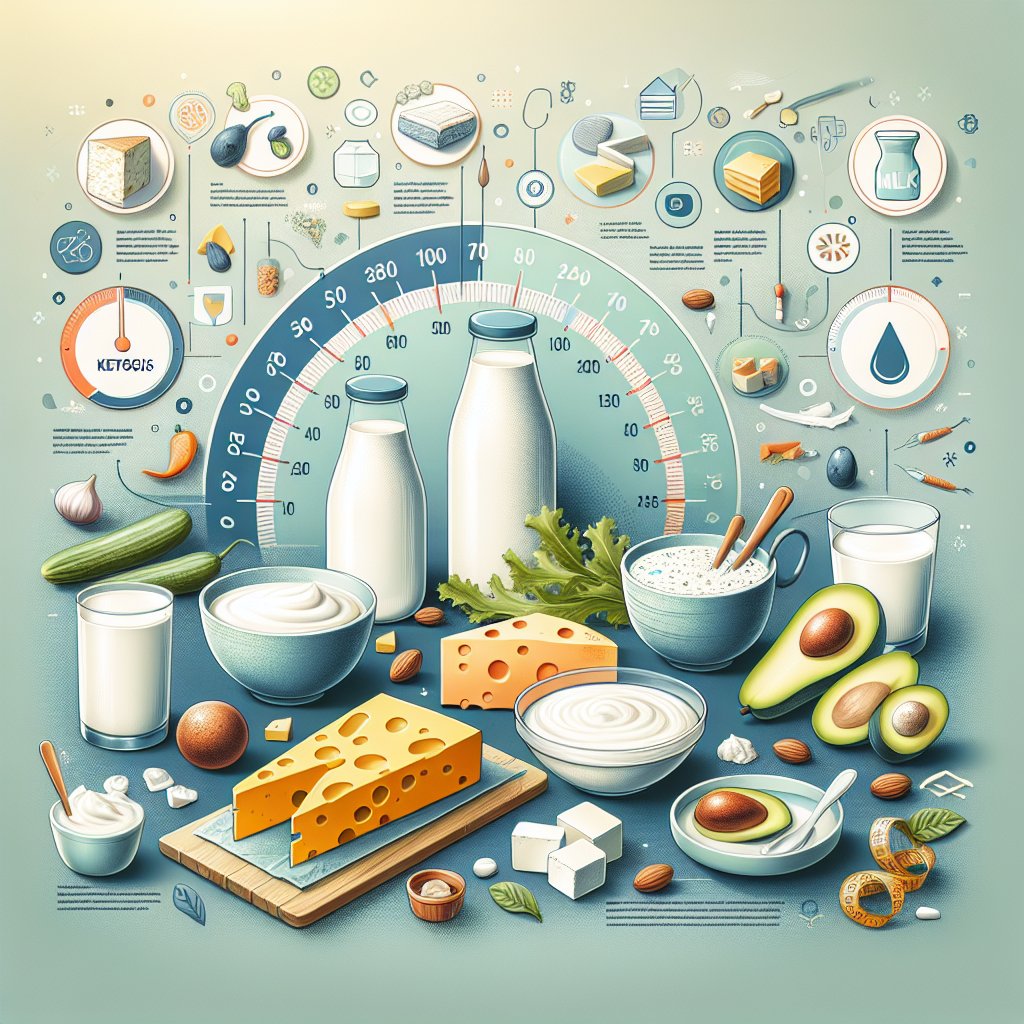
Alternatives to Milk on Keto
So, you’re on a keto diet and wondering if you can still enjoy milk? While traditional cow’s milk is relatively high in carbs, fear not! There are plenty of keto-friendly milk alternatives that you can still enjoy. Let’s explore some fantastic options that will complement your keto lifestyle.
Coconut Milk
Coconut milk is a creamy, dairy-free alternative that is ideal for those on a keto diet. It contains lauric acid, a type of healthy fat that can support your body’s fat-burning process. Additionally, it is low in carbs, making it a perfect addition to your keto smoothies and curries.
Almond Milk
Almond milk is another popular choice for keto enthusiasts. Not only is it low in carbs, but it also provides a good source of Vitamin E, which acts as an antioxidant in the body. Whether you prefer it in your coffee or as a base for your keto-friendly desserts, almond milk is a versatile and tasty option.
Hemp Milk
Hemp milk is a lesser-known but equally amazing alternative. It’s made from hemp seeds, which are rich in omega-3 fatty acids and have been shown to have anti-inflammatory properties. With its creamy texture and nutty flavor, hemp milk is an excellent choice for your keto chia pudding or protein shakes.
So, when it comes to enjoying milk on a keto diet, there’s no need to feel restricted. With these fantastic alternatives, you can still relish your favorite drinks and dishes while staying in ketosis.
Calcium Sources in Keto Diet
While milk may not be the best choice for a keto diet due to its lactose content, there are plenty of other sources of calcium that you can easily incorporate into your keto lifestyle.
1. Cheese
Cheese is a delicious and versatile source of calcium that can be enjoyed on a keto diet. It is low in lactose and high in fat, making it a great option for those following a ketogenic eating plan. Whether it’s cheddar, mozzarella, or parmesan, cheese provides essential calcium while being very low in carbs.
2. Leafy Greens
Leafy greens such as kale, spinach, and broccoli are not only low in carbs but also rich in calcium. These vegetables are excellent additions to your keto meals and can help meet your daily calcium needs.
3. Canned Fish with Bones
Certain types of canned fish, such as sardines and salmon, are packed with calcium-rich bones. Including these fish in your keto meal plan not only provides a good dose of healthy fats and protein but also contributes to your daily calcium intake.
4. Nuts and Seeds
Nuts and seeds like almonds, chia seeds, and sesame seeds are not only rich in healthy fats and protein but also contain notable amounts of calcium. They make for convenient and nutritious keto-friendly snacks or toppings for salads and yogurt.
5. Non-Dairy Milk Alternatives
For those who prefer a milk-like beverage, there are several non-dairy milk options available that are suitable for a keto diet. Almond milk, coconut milk, and hemp milk are often fortified with calcium, making them viable alternatives to traditional dairy milk.
By including these calcium-rich food options in your keto meal planning, you can ensure that you are meeting your calcium needs while staying in ketosis.
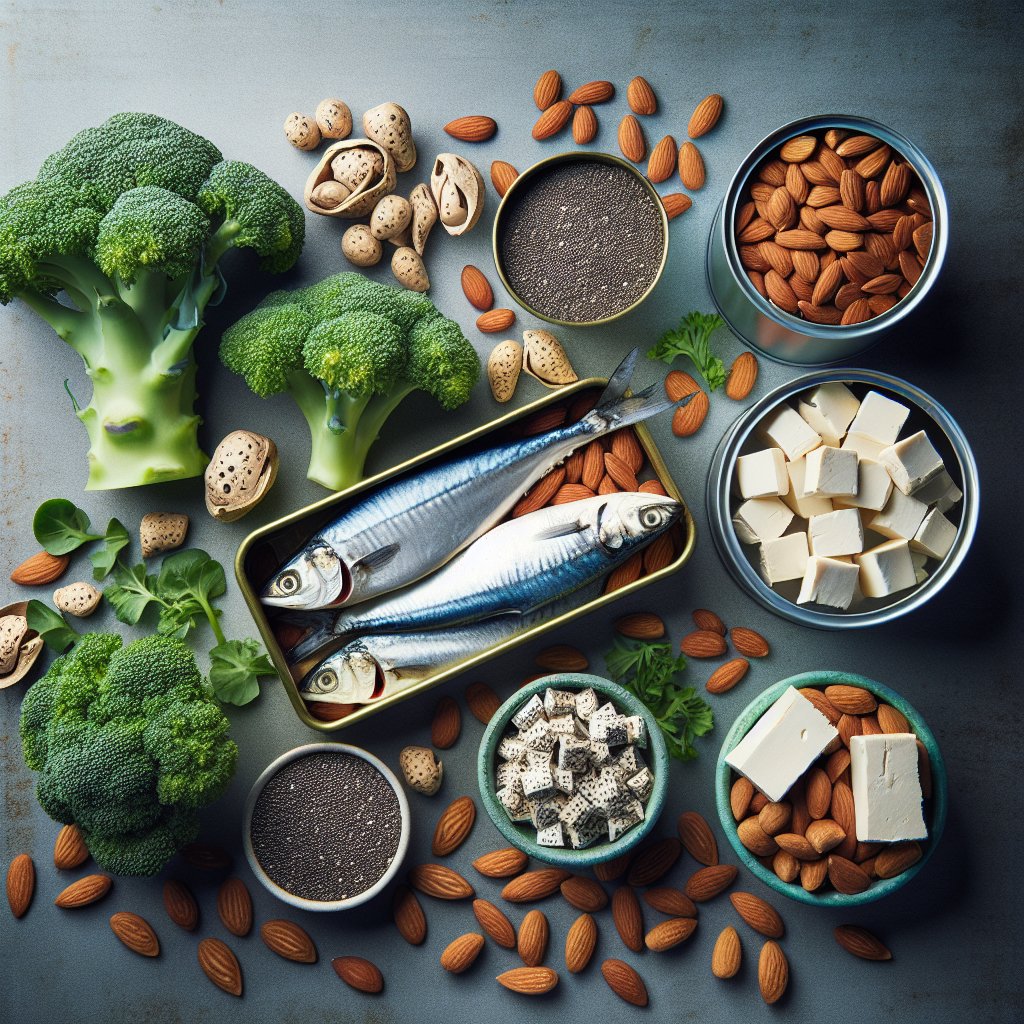
Recapping the Impact of Dairy Consumption on Ketosis and Weight Loss
Today, we delved deep into the topic of dairy consumption within the context of a ketogenic diet. We explored how dairy, particularly milk, can impact ketosis and weight loss. Let’s recap the key points we discussed to provide a conclusive answer to the question, “Can you have milk on a keto diet?”
The Impact on Ketosis
While milk contains natural sugars in the form of lactose, it also contains a significant amount of carbohydrates, which can potentially kick you out of ketosis. For individuals aiming to maintain a state of ketosis for fat burning and cognitive benefits, consuming milk in moderate to high amounts may not be conducive to this goal.
Weight Loss Considerations
Previous studies have shown that higher dairy consumption, particularly of high-fat dairy products, may be linked to greater weight loss and improved body composition. However, the overall context of the diet, individual tolerance to dairy, and the specific dairy product consumed all play crucial roles in this equation.
Can You Have Milk on Keto Diet?
So, can you have milk on a keto diet? The answer lies in moderation and individual tolerance. While a small amount of milk in coffee or tea may not significantly impact ketosis for some individuals, larger quantities of milk or frequent consumption may hinder the keto diet’s efficacy. It’s essential to prioritize high-quality, full-fat dairy options while being mindful of overall carbohydrate intake when incorporating milk into a keto diet.
Ultimately, whether or not milk can be consumed on a keto diet depends on each person’s unique body and goals. By being mindful of carb content and paying attention to individual responses, it’s possible to make informed decisions regarding dairy consumption while following a ketogenic lifestyle.


